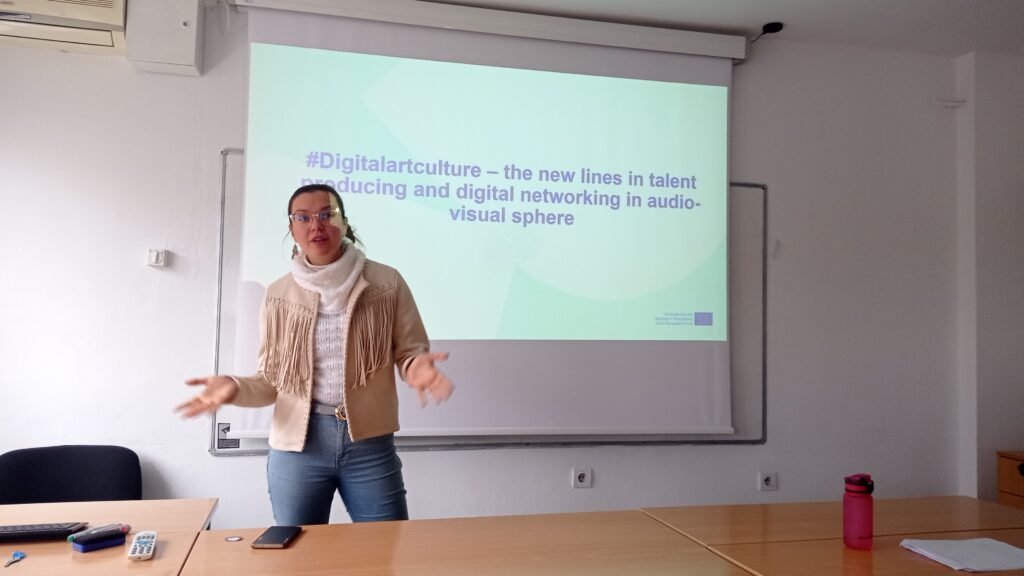The ERUA Traveling seminar “How do students and citizens organize solidary action to create sustainable futures?” was held on 30.11 – 2.12.2022 at the NBU. Bringing together over 35 students from the Masters’ programs in Social entrepreneurship, Global Studies and Social design and social care at Roskilde University, the Bachelors’ and Masters’ programs in Finance, Marketing, Entrepreneurship, Mass communications, Healthcare and Social works and representatives of the academia and NGO sector in Bulgaria. To discuss, stimulate and generate ideas and concrete proposals from researchers and students to further encourage initiatives and implement projects of all citizens, particularly young people, that will ensure a sustainable future for all. The seminar was organized by Assoc. Prof. Katia Dupret and PhD Fellow Kai Roland Green from Roskilde University, were hosted by Assoc. Prof. Tsvetelina Marinova and Assoc. Prof. Eduard Marinov from the Department of Economics of the NBU, with the support of Kristina Stoyanova, Mina Markova, Hristiana Stoimenova, Dr Radosveta Krastanova, Assoc. Prof. Margarita Stankova, Assoc. Prof. Polina Mihova, etc.
The seminar program included academic lecturers and representatives of real businesses in the circular, social and solidary economy fields. That allowed students to acquire, broaden and deepen their knowledge of the ideas, concepts, practices and organizations of the social economy, the circular economy and the sharing economy in general, as well as with a specific focus on Bulgaria and Denmark. And get acquainted with the functioning and activities, problems and opportunities of social enterprises and civil society in Bulgaria, as well as with the experience of students of Roskilde University and NBU in the fields of volunteering, social care, social design and sustainable action.
The field trips and dialogue with the representatives of Bread house network, Art atelier Tvorilnica, Blagichka – Zero waste, and Nasekomo. And the in-depth discussions on the practical aspects of circular, social and solidary actions in Bulgaria, in general. They enabled the elaboration of students’ projects for their involvement and contribution to creating a sustainable future. The discussion and reflection sessions and the group work workshops presented the students to participate in and develop concrete actions for possible collaborative efforts and activities in the sustainability, social and solidary actions. The students had the opportunity to generate ideas and proposals to develop and improve courses and programs on the social and circular economy, sustainable future and social care in both universities.

